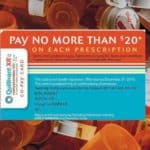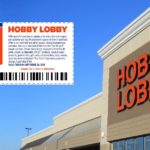
What kind of coupon says you can buy something for $15 – but when you use it, you end up spending $144.62?
Some coupon!
The coupons in question are various drug copayment coupons offered by Pfizer. And New York’s Attorney General has announced that Pfizer is refunding customers, and changing the wording on its confusing coupons, so anyone who thinks they’ll pay 15 bucks for medication doesn’t get charged nearly ten times as much again.
The Attorney General’s office opened an investigation after a consumer complained about a coupon for a Pfizer medication that promised she would “PAY NO MORE THAN $15”. When she used the coupon at her pharmacy, she was charged $144.62.
It turns out there were “limits on total savings that were not prominently disclosed” on the coupon, the Attorney General’s office explained.
As part of a settlement agreement announced Thursday, Pfizer has changed the wording on its coupons to something you might think it should have done in the first place. The coupons now read “Pay as little as $15”.
Big difference.
Pfizer will also pay $500,000 in penalties, fees and costs to the state of New York, and set aside at least $200,000 to refund consumers for the amount of their copayment that exceeded the coupons’ “PAY NO MORE THAN” amount.
The settlement is just another twist in the controversy over the very existence of drug copayment coupons, which critics say do more to line the pockets of drug companies than they do to help consumers.
A 2016 study by the Tufts Center for the Study of Drug Development – which was, ironically, funded by Pfizer – highlighted the “deceptive generosity of coupons”. Drug companies are increasingly offering coupons to consumers that drastically reduce the price they pay at the pharmacy counter. But the insurers that ultimately foot the bill don’t get the benefit of those coupons.
Just as it is with groceries or household goods, using coupons allows savvy shoppers to get brand names for less than it would cost to buy cheaper generics. But unlike with groceries or household goods, the manufacturer still gets reimbursed the full amount that the consumers’ health insurance will pay.
Remember when the maker of the allergy autoinjector EpiPen came under fire a couple of years ago for steadily raising prices until a box ended up costing more than $600? Drugmaker Mylan cheerily announced that there was nothing to worry about, because it was offering coupons worth hundreds of dollars so consumers never actually had to pay that much.
But insurers did.
At the time of the Tufts study, there were nearly 750 different coupons available to help consumers pay for brand-name drugs – more than eight times as many as there were just six years earlier. That helps to encourage more consumers to buy more expensive brand-name drugs, which costs insurers more, which can prompt them to raise rates, which makes health care more expensive for everyone.
As a result, some pharmacy benefit companies are refusing to cover certain drugs altogether, which ends up limiting choices for consumers who are supposedly being helped by the drug companies’ coupons.
So drug coupons are certainly controversial. But nowhere in the Tufts study did it say anything about coupons that were just plain deceptive.
“Pfizer misled customers by promising a low copay for prescription drugs – only to leave them with major bills at the cash register. Now, they must take responsibility and provide restitution to the New Yorkers they deceived,” New York Attorney General Barbara Underwood said in a statement announcing the settlement.
Pfizer did not admit any wrongdoing, but affirmed most of the attorney general’s findings and noted that it has already refunded $129.62 to the woman who filed the complaint that launched the investigation, ensuring that she actually did end up paying just $15 as her coupon suggested she would.
So if you use coupons for your medication, be sure to read all the fine print. And if the coupons check out and you really do get something for nearly nothing, just be warned that someone – perhaps you – may ultimately be paying the price.
Image source: Pfizer














